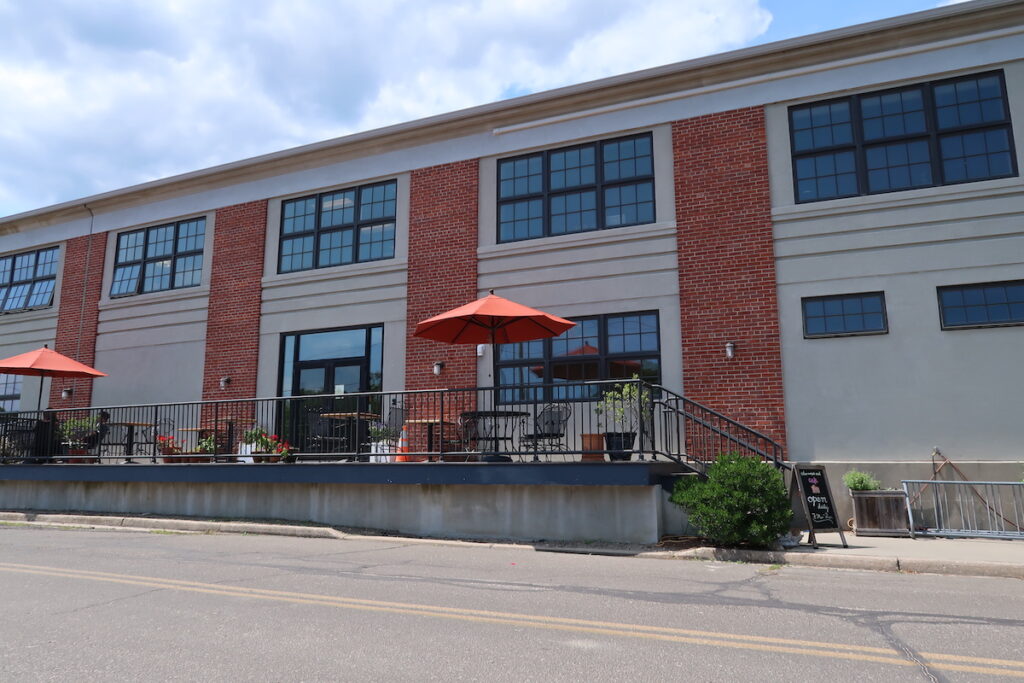Changes to CPF pass, though lack of clarity concerns Russell

Legislation is awaiting Gov. Andrew Cuomo’s signature that would permit all five East End towns to use up to 20 percent of its Community Preservation Fund dollars for water quality improvement projects.
The legislation passed both houses of the New York State Legislature last week, and if the governor OK’s the measure, voters in each town would vote on a referendum to amend the preservation program.
In addition to using the funds for water projects, the legislation extended the life of the program — which has been in effect since 1999 and brought in over $1 billion since its inception — for another 20 years.
Assemblyman Anthony Palumbo called the legislation “a great idea,” adding that the towns will be able to use the funding to their desire — a win for local government control.
“Each town can do as they see fit,” said Mr. Palumbo. “Less government is more.”
The CPF is funded through a two-percent tax of real estate purchases in the five East End towns. Passed initially to preserve open space and preserve a rural quality of life on the East End, the program in recent years has received a push to expand to include water quality upgrades to preserve local waterways — another vital aspect to East End life.
“The perception and hope was that if we preserved the land, that would also protect the water,” Assemblyman Fred Thiele — who drew up the original CPF legislation in the late 1990s — said in November. “That didn’t turn out to be true.”
In recent weeks, the lack of water preservation has been evident in the thousands upon thousands of dead bunker that have washed ashore in Flanders Bay. Scientists have blamed the die-off largely on excessive amounts of nitrogen in local waters, which stem from fertilizers and outdated cesspools and septic systems.
Southold Supervisor Scott Russell said on Tuesday that while “there are certainly some compelling aspects to” the extension of the CPF and water quality aspect to it, a lack of detail on what kind of projects the tax would actually pay for concerned him.
“It’s a very important goal,” he said, about improving groundwater quality. “But nobody has enumerated how that money should be spent, and it’s difficult to ask voters to agree to a tax when you haven’t identified for them where or how the money should be spent.”
In the case of CPF purchases, properties are identified and prioritized in advance. According to the text of the legislation, new changes to the CPF law point out six different kinds of water projects the funding could be used for: water quality improvement projects, wastewater treatment improvement projects, aquatic habitat restoration projects, pollution projects, stormwater collection systems and vessel pumpout stations.
Because of the lack of clarity, he said, Mr. Russell said he foresees a lot of money being spent on “soft costs” such as consultants and studies, rather than the projects themselves.
The news from Albany comes as a mixed blessing in Riverhead, as a similar piece of legislation failed relating to the Community Preservation Fund. The measure would have freed up CPF money for Riverhead it currently can’t spend on anything besides debt.
The town borrowed against its future CPF revenues starting in 2002. The town initially brought in more than enough to pay for what it had borrowed. But after the real estate crash hit in 2007, the town could no longer keep up with its debt payments as the price of real estate dropped — and tax revenue along with it.
It now owes more than it can pay on the debt each year, using a surplus it had built up in the program’s early years. However, that surplus is expected to run out in close to three years, according to Supervisor Sean Walter, who last year called the fund “bankrupt.”
If those reserves dry up, the town would have to cover the difference through its general fund — which would be another issue, as the town’s bond rating was downgraded by Moody’s in March due to a depletion of its reserves.
The legislation that passed in the state Senate but didn’t make it out of the Assembly would have permitted the town to refinance and extend its CPF debt payments through the year 2050. State law currently limits those debt repayments to have to be paid back over a 25-year span — the period of the land purchases’ “probable usefulness,” according to the town attorney’s office. The town hoped to extend that restriction since the usefulness of preserved land or water quality projects could be far longer than that, they argue.
“It’s like refinancing a mortgage on a house,” he said. “Instead of paying a 15-year mortgage we want to extend it to the 30-year. We wanted to refinance over the longer term to get our debt payment down.”
If he wins re-election this fall, Mr. Walter said he’s confident he’ll be able to devote the time necessary to lobby the right people in Albany next year to get the legislation passed. The supervisor said that because of an upcoming Republican primary race, he has been unable to focus his efforts on getting the legislation passed.







